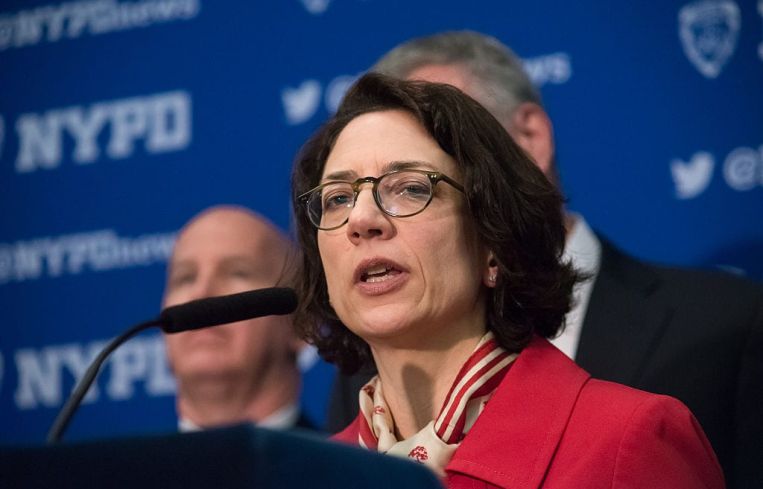NYC’s Former DOT Chief Polly Trottenberg Named US Deputy Transportation Secretary
Biden's nominee resigned in November, leaving a mixed record in NYC
By Chava Gourarie January 18, 2021 2:48 pm
reprints
New York City’s former Department of Transportation chief, Polly Trottenberg, will join the Biden administration as deputy transportation secretary, the president-elect’s transition team announced Monday.
She’ll serve as the second-in-command to Biden’s pick for secretary of transportation, former presidential candidate and South Bend, Ind., Mayor Pete Buttigieg, pending confirmation of both by the Senate.
“Our nation needs a safe, equitable and environmentally sustainable transportation system that creates jobs and supports economic recovery,” Trottenberg tweeted Monday. “Looking forward to working alongside @PeteButtigieg and the USDOT team to build back better.”
Trottenberg resigned from her position as NYCDOT commissioner in November after serving under Mayor Bill de Blasio since 2014. Prior to that, she served in the Obama administration as undersecretary of transportation policy.
During her tenure as New York’s transportation commissioner, Trottenberg oversaw the implementation of the Vision Zero program, which is meant to eliminate all traffic deaths by 2024; an expansion of cycling infrastructure throughout the city, including 84 miles of protected bike lanes; and the opening of the 14th Street Busway, with five more car-free routes planned after its successful rollout.
Trottenberg also worked with the Metropolitan Transportation Authority on congestion pricing for most non-commercial vehicles south of 60th Street in Manhattan, and is now in a position to help shepherd through its final stages. The legislation passed in the New York State budget in 2019 and was scheduled to be implemented in 2021, but was waiting on review from USDOT.
During her time with NYCDOT, Trottenberg faced an increase in delivery truck traffic as a result of the shift to online shopping, which led to delivery drivers often unloading their boxes in the middle of the street. NYCDOT attempted to address the issue with a mix of off-hour delivery incentives and a six-month cargo bike pilot program that was eventually overshadowed by the coronavirus pandemic.
In her final year, COVID upended the normal order of business for the city’s streets, and the de Blasio administration was slow to pivot to the needs of a locked-down city. New York was late to implement open streets and outdoor dining, though both were launched after pressure from the City Council and the private sector, and some form of outdoor dining is expected to be permanent post-COVID.
Despite the accomplishments, the legacy of Trottenberg’s DOT is mixed at best. While Vision Zero refocused the administration on pedestrian safety, traffic deaths increased in 2019 and 2020 after initially declining.
In addition, traffic and bus speeds declined considerably as streets have grown increasingly clogged, and bike activists have decried the bike infrastructure as insufficiently protected. And the lack of innovation early on in the pandemic put New York City behind other major cities worldwide.



